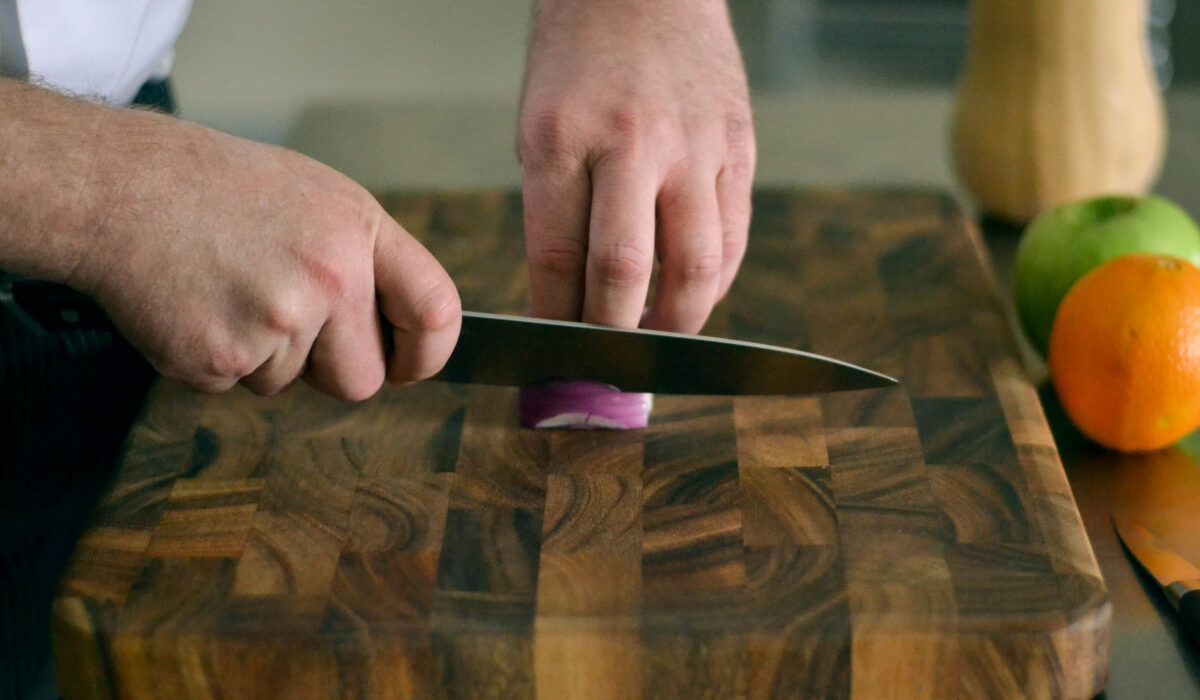In the world of culinary arts, the importance of German knives in culinary school cannot be overstated. These knives are renowned for their durability, precision, and craftsmanship, making them indispensable for both budding and seasoned chefs. Understanding the role of these knives in a culinary setting is crucial for anyone looking to excel in the kitchen.

Why Are German Knives Preferred in Culinary Education?
German knives have a long-standing reputation for excellence. Crafted with high-quality materials, they are designed to withstand rigorous use, which is why they are favored in culinary schools worldwide. The balance and weight of these knives allow for precision cutting, which is essential for developing proper knife skills. Aspiring chefs learn to appreciate the fine craftsmanship that goes into each knife, contributing to their overall culinary education.
The Historical Significance of German Knives
The history of German knives dates back centuries, with regions like Solingen becoming synonymous with top-tier knife production. This heritage is not just about tradition but about a commitment to quality that has stood the test of time. For more on the history of German knife-making, check out this extensive article.
Core Features of German Knives
German knives are known for their strong, durable blades, typically made from high-carbon stainless steel. This material is resistant to corrosion and maintains a sharp edge for longer periods. The full tang constructiona single piece of metal running from the tip of the blade to the end of the handleensures strength and balance.
Blade Design and Functionality
The blade of a German knife is often thicker and heavier compared to other knives, providing stability and control. This design is especially beneficial in a culinary school setting where students are learning to perfect their chopping, slicing, and dicing techniques.
Learning Knife Skills with German Knives
In culinary schools, mastering knife skills is a fundamental part of the curriculum. German knives provide students with the opportunity to learn these skills on tools that professional chefs use in high-end kitchens. From julienning vegetables to deboning chicken, these knives are versatile enough to handle a variety of tasks.
Safety Tips for Handling German Knives
Safety is paramount when working with sharp tools. Students are taught proper handling techniques to prevent accidents. For a comprehensive guide on knife safety, refer to these safety tips.
The Role of German Knives in Professional Kitchens
Beyond culinary school, German knives are a staple in professional kitchens. Their reliability and performance make them a favorite among chefs who require tools that can withstand the demands of a busy kitchen environment.
Choosing the Right German Knife
Selecting the appropriate knife depends on the specific culinary tasks at hand. Chefs often choose different knives for tasks such as butchering or slicing. Visit this guide on butchering knives for more information.
Maintaining German Knives
Proper maintenance is crucial to extending the life of German knives. Regular sharpening, cleaning, and correct storage are all part of maintaining these valuable tools. Consistent upkeep ensures that the knives remain sharp and effective over time.
Sharpening Techniques
Sharpening a German knife involves using a whetstone or honing steel to maintain its edge. This skill is taught in culinary schools to ensure that students can keep their tools in optimal condition throughout their careers.
The Future of German Knives in Culinary Education
As culinary techniques evolve, so do the tools used by chefs. However, the classic design and enduring quality of German knives ensure their place in both education and professional settings for years to come.
Innovation in Knife Technology
While traditional craftsmanship remains a cornerstone, modern innovations are also being integrated into German knives, enhancing their functionality and appeal to a new generation of chefs.

FAQ Section
What makes German knives different from other knives?
German knives are distinguished by their robust construction, high-carbon stainless steel blades, and excellent balance, providing durability and precision.
Are German knives suitable for all types of cooking?
Yes, German knives are versatile and can handle a wide range of cooking tasks, making them a great choice for both beginners and professional chefs.
How should I care for my German knives?
Regular sharpening, proper cleaning, and correct storage are essential to maintaining the quality and longevity of German knives.
This article contains affiliate links. We may earn a commission at no extra cost to you.


